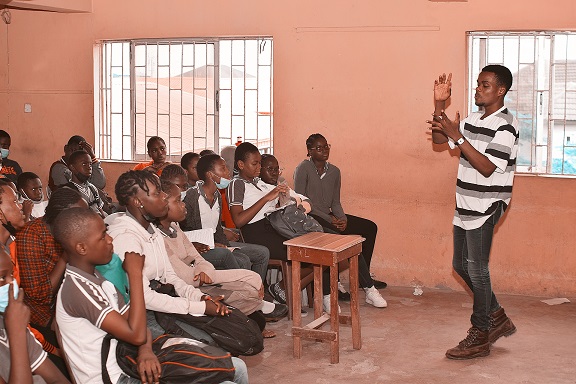Current waste management practices in Africa are causing major economic, social and environmental impacts. The rise in plastic consumption combined with weak waste collection infrastructure is resulting in increased marine plastic litter, which is negatively impacting coastal economies. Poor dumping, disposal and burning of waste is causing greenhouse gases to escalate, which is polluting both ground and surface water. It is also increasing the risk of diseases and causing air pollution, ultimately affecting human health.
The average waste collection rate in Africa is approximately 55% of all the existing waste materials. More than 90% of Africa’s waste is disposed of at uncontrolled dumpsites and landfills, often followed by open burning. Most importantly, 19 of the world’s 50 biggest dumpsites are found in Africa and are predominantly located in Sub-Saharan Africa. An average of approximately 13% of municipal solid waste generated in Africa is plastic, and 57% constitute organic waste [1].
There is a significant risk associated with the current waste management systems and practices on the continent. However, with this risk there are lucrative economic and social opportunities that can help solve these issues.
TakaTaka, a Kenyan company, has actively managed waste collection, sorting, composting, plastic recycling and purchasing waste from waste materials pickers. Consequently, this waste management project has enabled affordable waste collection services to low-income areas by augmenting the recycling system to approximately 90% of all collected waste material. This project has also led to job creation for women and young people. Furthermore, the waste material project has reduced Kenya’s gas emission effluents, which has resulted in a cleaner and healthier environment in Kenya [2].
The Ethiopian government has transformed the Koshe dumpsite into a waste-to-energy plant. This has effectively transformed, re-purposed, and revolutionised the dumpsite into incinerating approximately 1,400 tonnes of waste materials daily towards generating electricity. This has resulted in approximately 80% of Addis Ababa’s rubbish being repurposed towards energy supply, with the city supplementing approximately 30% of household electricity [3].
Elsewhere on the continent waste disposal and management companies in South Africa have invested in new technologies that can efficiently manage waste collection. These companies leverage user-friendly smartphone applications to facilitate prompt service, extra pickups, and bill payment through push notifications. This new technology has effectively enhanced cost-effective waste collection costs by simplifying the waste material collection processes [4].
There are many success stories in Africa and outside the continent where companies have generated innovative plastic management solutions, leading to a change in how industries are viewing the long term viability of sustainable business. Some companies are producing apparel from plastic shopping bags, repurposing beach plastic into kitchenware, producing edible seaweed straws instead of plastic straws, recycling plastic waste and using it in the construction of shelters and repurposing old fishing nets into games and sports equipment. There is increasing interest in “inclusive innovation”. New goods and services are developed for and/or by those who have been excluded from the development mainstream; particularly the billions living on the lowest of incomes.
These innovations in waste management for Africa and globally are meeting many of the United Nations Sustainable Development Goals by minimising greenhouse gas emissions which are helping to alleviate the climate crisis, conserving oceans and land to preserve marine and wildlife, and ensuring healthy lives and promoting well-being. Additional benefits from innovations in plastic waste management are energy conservation, reduced petroleum use and reduced landfill use.
Despite the great strides made by many companies in Sub-Saharan Africa in providing plastic management solutions, there is still a significant need to minimise reliance on plastic, develop new ways of managing plastic waste, and/or develop new uses for plastic that has been discarded.
There is a call to action to bring waste under control by providing access to proper waste management services and unlocking the socio-economic opportunities of waste as a resource, by moving away from disposal towards waste prevention, reuse, recycling and recovery.
With growing risks of inadequate plastic waste management, innovators, startups and established companies in Sub-Saharan Africa have a huge opportunity to launch new and inclusive ideas to respond to plastic and waste management issues through seeking gaps in the innovation landscape which can make a positive difference in both the environment and communities.
References:
- Africa Waste Management Outlook (2018) https://wedocs.unep.org/handle/20.500.11822/25514
- TakaTaka Composting and Sustainable Waste Management Project – Kenya (2021)
https://unfccc.int/climate-action/momentum-for-change/activity-database/takataka-composting-and-sustainable-waste-management-project - Ethiopia opens Africa’s first waste-to-energy facility (2018)
- What A Waste: Innovations In Africa’s Waste Material Management (2021)
https://www.nepad.org/blog/what-waste-innovations-africas-waste-material-management










